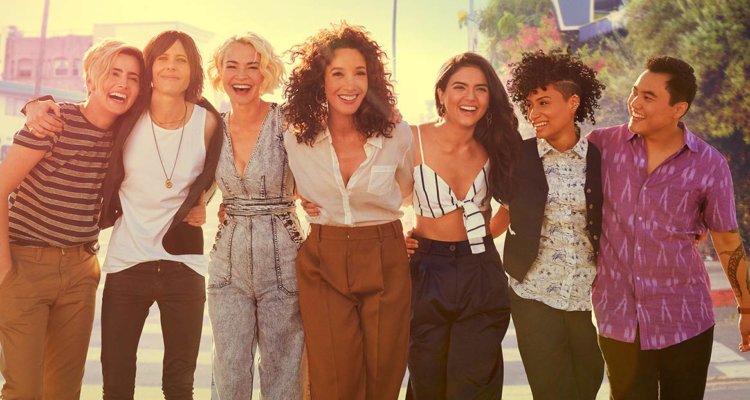There is a truth we all must accept: “The L Word” is not, in the classical sense, good. It is not prestige television, nor was it ever meant to be. Since 2004, “The L Word” universe has been one to which we have escaped seeing a cast of Sapphics talking, laughing, loving, breathing, fighting, fucking, etc. Even after 17 years, it is still the only ensemble lesbian drama on TV.
READ MORE: Summer TV Preview: Over 40 Series To Watch
Though “The L Word: Generation Q” is more understated than its foremother — where you are as likely to see a prestigious guest star as you are to see, say, a jilted ex committing arson — it is still essentially a high-production soap opera. The first season hinged on a love triangle, and the second season (at least the first three episodes available to critics) focuses most of its energy there, too. Yet “Generation Q,” created by Marja-Lewis Ryan, pretends to operate on a higher plane, frequently interrupting the show’s deliciously messy energy with artsy camera angles and experimental sound design.
READ MORE: The 65 Most Anticipated TV Shows & Mini-Series Of 2021
Viewers are likely not as interested in these technical acrobatics as they are in the show’s dramas. Will Sophie (Rosanny Zayas) marry her fiancée, Dani (Arienne Mandi), or run off with her best friend, Finley (Jacqueline Toboni)? Will Alice (Leisha Hailey) and her girlfriend (Stephanie Allynne) ever figure out polyamory? Will Shane (Kate Moennig) ever stop being Shane? Season 2 tackles all of this — and way, way more — immediately.
READ MORE: The 25 Best TV Shows & Mini-Series Of 2020
In true “L Word” tradition, the melodrama is handled erratically, as our adorable cast bumbles through a series of terrible decisions. This ensemble is mostly lovable, particularly Toboni’s dopey Finley, Beals’ commanding Bette, and youngster Jordan Hull as Angie, but their emotional idiocy can be exhausting. Series vets Bette (Jennifer Beals), Shane, and Alice, resist growth as much as their younger counterparts, leading one to wonder how these women, who float from high-stakes poker games to elaborate dinners, cannot afford therapy.
The multiple dramas occasionally make episodes feel overstuffed. As in season one, Leo Sheng’s Micah, the sole trans man, sadly feels most extraneous as he putters from story to story (one of which, ironically, centers on the issue of tokenization). But guest stars breathe new life into these often circular stories, with Rosie O’Donnell and Donald Faison both showing up as a lovably doofy butch and an eager book editor, respectively.
Overall, “The L Word: Generation Q” Season 2 sticks to its usual formula. That’s not a terrible thing: This show’s cultural significance cannot be understated, and it offers comfort food to an entire underrepresented community. But it’s not a net positive, either, as these characters continue to spin their wheels, offering plenty in the way of histrionics with consistently scant development. [C+]

